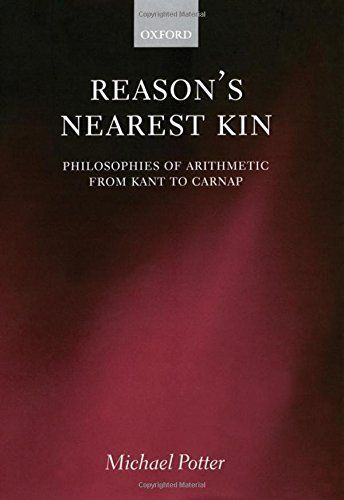
Reason's Nearest Kin Philosophies of Arithmetic from Kant to Carnap
How do we account for the truth of arithmetic? And if it does not depend for its truth on the way the world is, what constrains the world to conform to arithmetic? Reason's Nearest Kin is a critical examination of the astonishing progress made towards answering these questions from the late nineteenth to the mid-twentieth century. In the space of fifty years Frege, Dedekind, Russell, Wittgenstein, Ramsey, Hilbert, and Carnap developed accounts of the content of arithmeticthat were brilliantly original both technically and philosophically. Michael Potter's innovative study presents them all as finding that content in various aspects of the complex linkage between experience, language, thought, and the world. Potter's reading places them all in Kant's shadow since it was hisattempt to ground arithmetic in the spatio-temporal structure of reality that they were reacting against; but it places us in Gödel's shadow since his incompleteness theorems supply us with a measure of the richness of the content they were trying to explain. This stimulating reassessment of some of the classic texts in the philosophy of mathematics reveals many unexpected connections and illuminating comparisons, and offers a wealth of ideas for future work in the subject.